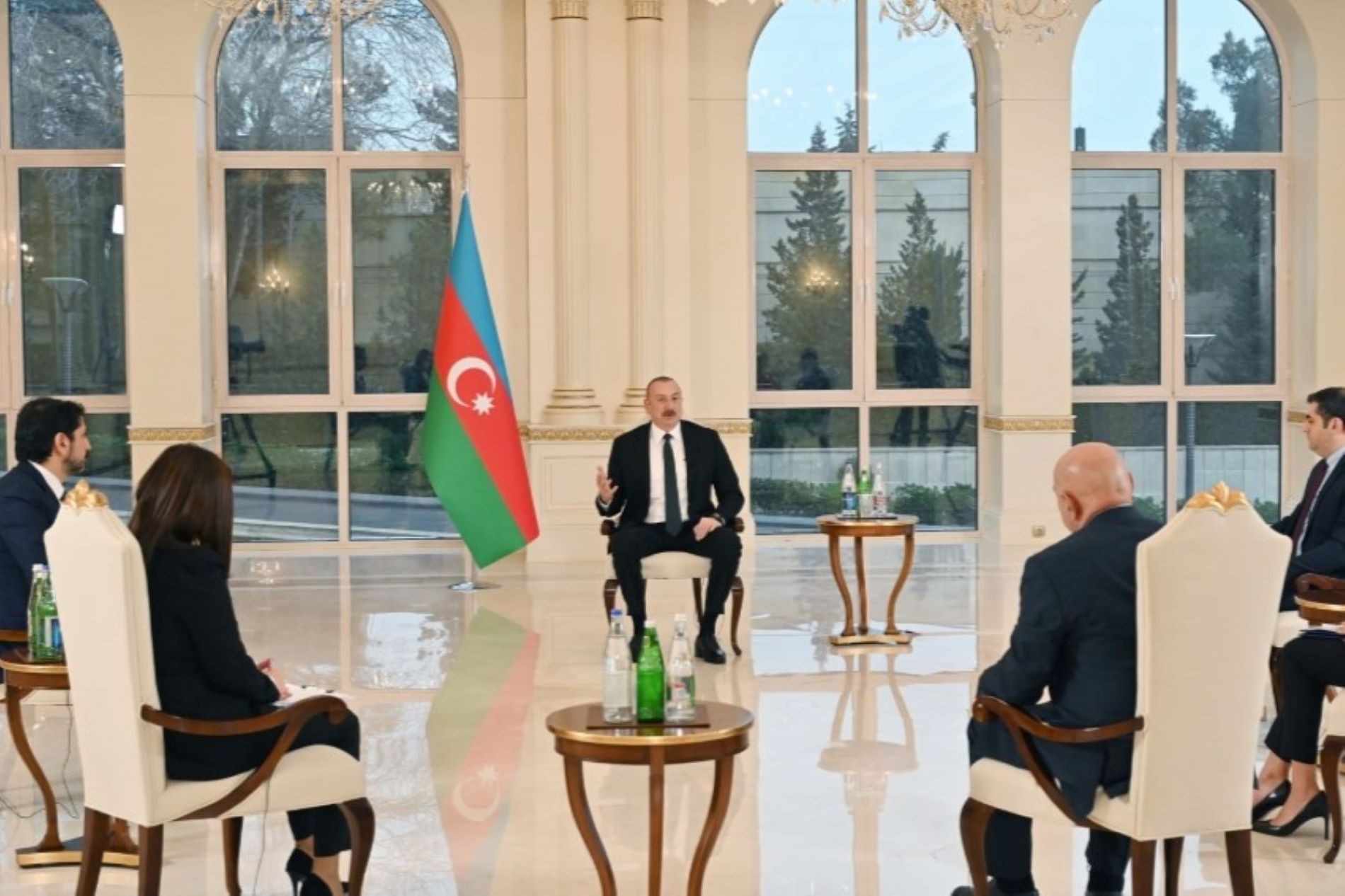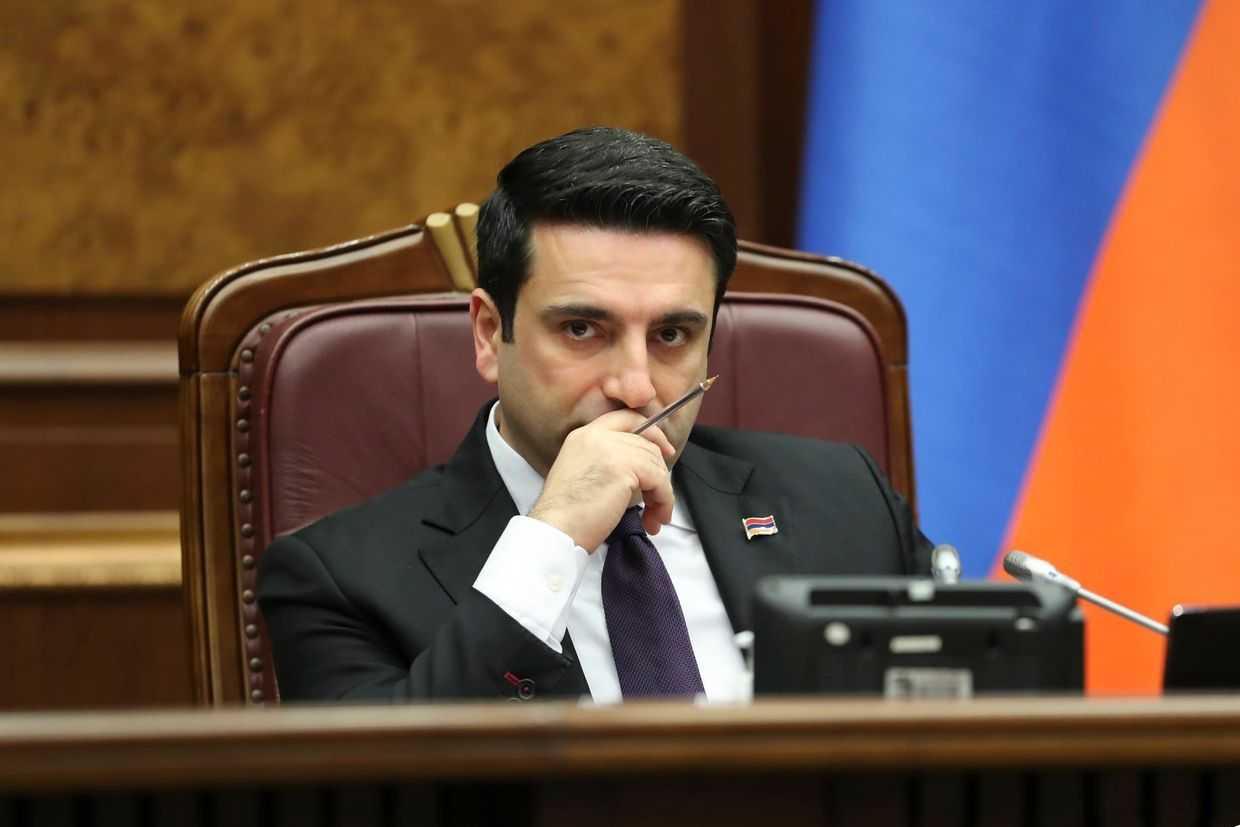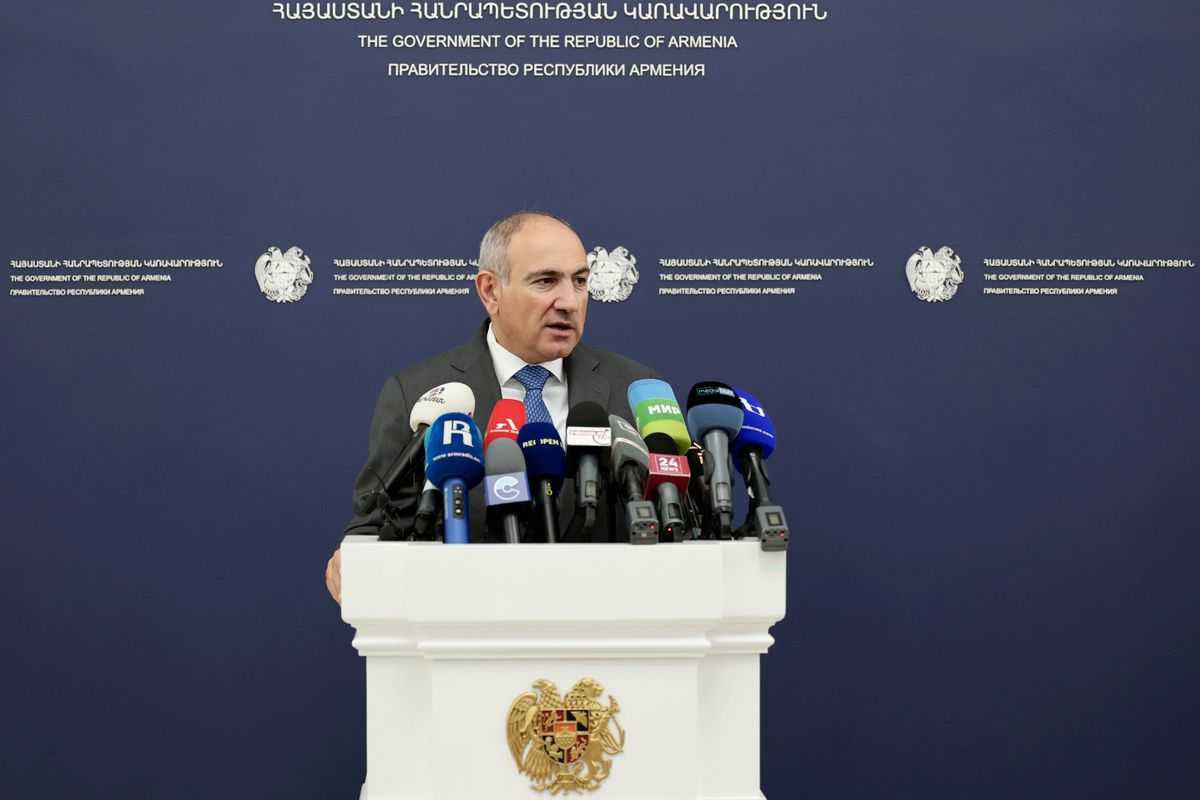
Azerbaijan’s President Ilham Aliyev has publicly addressed the closure of the Lachin Corridor for the first time since it began just under a month ago, denying that Nagorno-Karabakh was under blockade. Aliyev also suggested that 2023 was ‘the last chance’ for Armenia and Azerbaijan to reach a peaceful agreement over the territory.
Speaking to journalists on 10 January, Aliyev accused Armenia of using the corridor to transport arms from Iran and India.
He also announced that Azerbaijan had ‘no intention of starting a third war’ while noting that Azerbaijan had ‘at least doubled’ the size of its military special forces.
Discussing the ‘eco-activists’ who have been blocking the Lachin Corridor since 12 December, Aliyev praised the protesters, calling their demands ‘legitimate’, and describing claims that the road had been blocked as ‘false information’.
‘The young people who are protesting on the Lachin-Khankendi [Stepanakert] road are our pride. They are there day and night in frosty and snowy weather, they demand their rights and once again show the whole world how high the qualities of the young people of Azerbaijan are.’
‘There is no question of a blockade there; about 400 peacekeeper trucks have passed through there’, he said.
There have been increasing reports of widespread food and medicine shortages in Nagorno-Karabakh since the closure of the Lachin Corridor — the territory’s only connection to Armenia and the rest of the world.
[Read more on OC Media: Nagorno-Karabakh introduces rationing and blackouts as blockade continues]
Aliyev went on to claim that the Lachin Corridor had been used to illegally transport arms and fuel to Armenia from, respectively, India and Iran.
‘We see and know which countries are willing to give arms to Armenia’, said Aliyev. ‘Unfortunately, India is now amongst them. We consider this as an unfriendly step because these weapons […] have a target, and that is Azerbaijan.’
He also stated that ‘all the vehicles that passed through there, even before this action, were under surveillance’.
‘How did we learn that Iranian vehicles were carrying fuel there? We saw it there. However, the Iranian side tried to deny it before. They even put fake Armenian [numberplates] on the Iranian vehicles, they wanted to deceive us at such a primitive level.’
Azerbaijani media has previously suggested that Azerbaijan was establishing a checkpoint for vehicles entering and exiting Nagorno-Karabakh, a suggestion rejected by the government in Nagorno-Karabakh.
‘Monitoring, inspection, and stopping illegal [environmental] exploitation is required and we will achieve it,’ Aliyev stated. ‘That’s why it is simply unfair to call the events happening on the Lachin-Khankendi road a blockade.’
Last chance for peace
Aliyev noted that the Russian peacekeeper mission in Nagorno-Karabakh was scheduled to end in 2025, and suggested that 2023 was ‘the last chance’ to reach a peaceful agreement between Armenia and Azerbaijan over the territory.
‘Because then 2024 comes, and then in 2025, Russia’s peacekeeping mission ends. They need to think ahead of their noses’, Aliyev said.
He added that Azerbaijan had ‘no intention of starting a third war’, but noted that Azerbaijan had increased the size and capacity of its armed forces since the Second Nagorno-Karabakh War in 2020.
‘Azerbaijan has already created and will create such an armed force that it should be considered suicide to reckon with it. Our commando forces have already been fully formed, have become a very large force, and this process continues, […] their number will increase. The number of our special forces will also increase. We have at least doubled and will increase [them].’
Aliyev also claimed that in 2023, Armenia would ‘finally understand that a peace treaty is inevitable’, noting that he had expected an agreement to be signed by the end of 2022.
‘What is Armenia waiting for? Probably, it is waiting for some geopolitical changes, maybe something that someone promised it. Over the past year, we have shown three times that no one can stand in front of us and we achieve what we want, and any Armenian patron cannot come to their aid.’
‘Visual observation now allows us to foresee any threat and prevent it. I believe that Armenia, which has already suffered such military and political failures three times, will understand that a peace treaty is inevitable. The sooner they understand and the sooner they find the strength and will to agree to it, the better it will be for the region,’ Aliyev said.
For ease of reading, we choose not to use qualifiers such as ‘de facto’, ‘unrecognised’, or ‘partially recognised’ when discussing institutions or political positions within Abkhazia, Nagorno-Karabakh, and South Ossetia. This does not imply a position on their status.









